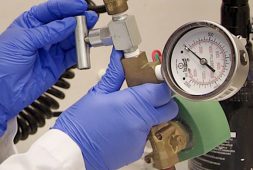
In a large trial, the results showed that just one injection of a patient’s own stem cells to the heart managed to reduce the inflammation, as well as the risk of heart attack and stroke, by an impressive 58%, if they had heart failure.
Statistics show that 6 million Americans have been clinically diagnosed with heart failure. This is a heart condition described as a lack of the heart’s ability to pump blood through the heart and body sufficiently.
As for study lead author, Dr. Emerson Perin, he told the European Pharmaceutical Review, “For the first time, we’ve discovered that stem cells can successfully treat the inflammation that causes heart failure.”
Currently, this has been considered the biggest trial of cell therapy for heart disease, which demonstrated many several results. Moreover, the researchers note that one should understand the cure in order to truly understand the problem.
One is considered to have heart failure when less than 40% of the blood inside the heart gets pumped out into the body. In theory, one could suffer a cardiovascular event, such as a heart attack, at any time. This is called left ventricular ejection fraction (LVEF), while a healthy person’s fraction sits between 55% to 70%.
Inflammation is highly associated with heart disease, since both of these health condition tend to arise from a poor lifestyle pattern, causing most of the heart disease cases. As a result, the cardiologists from the Texas Heart Institute created a treatment that could address the inflammation.
They decided to take stem cells from a patient’s bone marrow, which is called mesenchymal precursor cells, and replicate them in a lab through proprietary methods. This injection, which was developed by a pharmaceutical company called Mesoblast, was then injected straight into a patient’s heart.
This kind of treatment, which is called rexlemestrocel-L, was well-tolerated by most patients, and for those that received it, they didn’t have any additional inflammation as a result. Moreover, the patients that were treated also showed increased performance of LVEF, meaning their hearts managed to pump out more blood volume than before.
As explained in a statement by CEO of Mesoblast, Dr. Silviu Itescu, “We are very encouraged by these study data that indicate the potential of our allogeneic cellular therapy to address the major areas of unmet need in heart failure patients where conventional treatments are not effective.”
“Improvement in LVEF at 12 months may be a functional surrogate endpoint for rexlemestrocel-L’s subsequent benefits on long-term MACE outcomes and survival in this high-risk patient population with chronic heart failure,” he added.
The trial has since been placed on a phase 3, double-blinded, placebo-controlled trial status, which is considered the “gold standard” for medicine. The hope is that it will open the door for future trials of the same type of medication, which turning the research into real treatments for the thousands of people suffering from heart disease.



